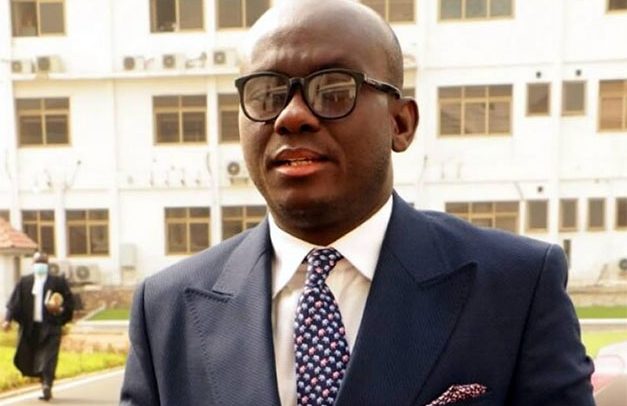Godfred Yeboah Dame
The Attorney General and Minister for Justice, Godfred Yeboah Dame, has outlined the measures taken by government over the years to fight corruption and other economic crimes in the country.
Speaking at the 39th International Symposium on Economic Crime at the University of Cambridge in the UK yesterday, he said government has since 2017 commenced criminal proceedings against individuals involved in offences related to wilfully causing financial loss to the state, stealing, corruption, fraud, procurement breaches and money laundering.
These cases, he said, have as their sole object the principle of holding public officers to account and involve sums of over US$850 million.
The International Symposium on Economic Crime is an annual symposium organised by Cambridge University, and it is the leading global forum for discussion of issues relating to the combat of financial crimes. It draws 2,000 participants from 100 countries.
Speakers included the UK Attorney General, Attorneys General from Singapore, Ghana and Argentina, the MP for Cambridge, the Mayors of Cambridge and London, Members of the House of Commons, leading judicial officers and chief law enforcement officials from around the world.
Accompanying the Attorney General to this year’s event are 14 state attorneys involved in criminal prosecution at the Office of the Attorney General and Ministry of Justice.
Mr. Dame, in a keynote speech, touched on prosecutions arising from the banking sector crisis, the Menzgold saga, prosecution of high-profile public officers as well as international collaboration to fight financial crimes.
“I am happy to state that after painstaking investigations, dockets on that financial crime are almost ready for prosecution to commence in earnest,” he said on the case of Nana Appiah Mensah, the CEO of Menzgold Ghana Limited.
According to the Attorney General, the multiple manifestations of economic crime show that there is no single structure under which wrongdoers operate as they exploit differences between countries to further their objectives, enriching their organisations, expanding their power and avoiding detection or apprehension.
He said they gain influence in government, politics and commerce through corrupt and illegitimate means, adding that the need for states to cooperate in combating the threat of economic crimes is, therefore, more than imperative.
In Ghana, he said the President Akufo-Addo-led government recognises that the most enduring way to fight corruption and protect the financial sector is by strengthening the regime, and with a clear understanding that corruption thrives in an atmosphere conducive to its concealment, and that access to information is a vital tool in the fight against corruption, the government ensured the passage of the Right to Information Act 2019 (Act 989).
Mr. Dame said other bold legislations introduced by the government to curb official wrongdoing in the public sector include the Witness Protection Act, 2018 (Act 975), Anti-Money Laundering Act, 2020 (Act 1044), Corporate Restructuring and Insolvency Act, 2020 (Act 1015), Companies Act, 2019 (Act 992), Revenue Administration (Amendment) Act, 2020 (Act 1029), State Interests and Governance Authority Act, 2019 (Act 990), and Real Estate Agency Act, 2020 (Act 1047).
He added that Parliament a few weeks ago enacted an amendment to the Criminal Procedure Act of Ghana to introduce plea bargaining into Ghana’s criminal jurisprudence which if properly applied, can speed up the administration of justice and ease congestion in Ghana’s prisons.
“Economic crimes threaten the prosperity of nations and weaken public confidence in the government of every nation. They can, not only undermine the values we hold dear as a society, but also prop up the kind of authoritarian regimes that wreak havoc in the world,” Mr. Dame indicated.
He added that, “Criminals ought to be deprived of their assets in order to reduce the impact of their actions and the inspiration they serve to others on the continent. Crime must not be rewarding.”
BY Gibril Abdul Razak


